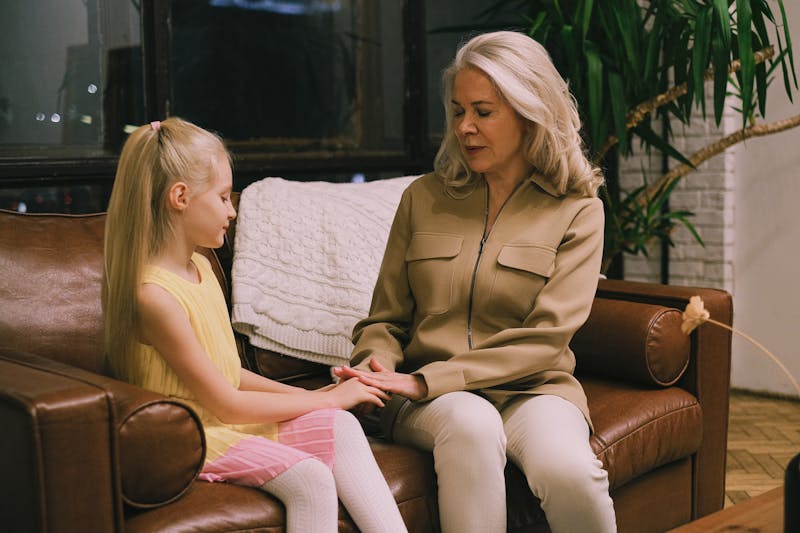
Talking to your Child about an Absent Parent
Trying to find the right words to explain to your child about an absent parent can be really difficult. Do you tell them the truth? How do you react to their questions? Read on to get more insight into how you can approach this delicate subject…
There are a variety of reasons for a parent being completely absent from your child’s life.
The main four are:
- The other parent is not interested
- The other parent is abusive and it is not safe for your child to have contact
- The other parent lives abroad and regular visits are difficult
- You have been bereaved
How do I tell my child the other parent is not interested in them?
The short answer is… you don’t, well, not while they are young anyway. Don’t lie to them, keep it factual, answers such as “Daddy lives too far away” or “Mummy has chosen to live with John” if questioned, can be followed up with lots of reassurances of love and “I will always be with you” from you. As they get older it gets harder and your heart will be wrenched by your child asking plaintively “But why doesn’t Mummy love me?” or “Why doesn’t Daddy send me a present on my birthday?”
It’s Ok to say “I don’t know. I understand you feel sad” and move on to something else. It is so tempting to criticise the other parent, especially when they have hurt your precious child, but remember that all that matters is minimising that hurt to your child. Sadly they will have to face that hurt as they grow up but you, as their rock, will have been there for them all along.
What to do if the other parent is abusive?
It is not so different from the situation above if they accept that they are not permitted to see their child. But what if they constantly try to make trouble and come to the house? How can you skate over the fact that Daddy is “naughty” or Mummy tries to kick the door in? Sadly you cannot protect your children from this hurt, you can only mitigate what happens by being strong, involving the authorities, reassuring your child over and over, and by finding good support for yourself in order to cope with this awful situation.
It is, however, important to acknowledge to your child that what is happening is wrong and that you do not agree with the other parent’s behaviour, whilst saying that you will keep them safe.
What if the other parent lives abroad?
If the other parent is not interested then see above. If they do want to maintain a relationship then there are ways for you both to foster this. Methods of contact between visits can vary with the age of the child, including webcam, Skype, Facebook, MSN Messenger, picture postcards, email, airmail letters, international telephone calls, photographs and voice recordings. It is even more important that arrangements made are stuck to when the parent is far away, because so much time goes by between actual physical contact visits.
If you have been bereaved
This is a very hard situation as you struggle with your own bereavement. Your child may be afraid of upsetting you more by grieving so it is important to “give them permission” to show those feelings: “I am sorry you are sad. I am sad too, I miss your dad/mum so much”.
Whether or not your child has strong memories of their parent, you can encourage these by looking at old photos, talking about things they did with the other parent, how happy they were when the child was born, whether there is a resemblance (“you have the same colour eyes as your them”) and how proud the other parent would be of them. As your child grows older, be careful not to turn this into “Your poor mum/dad would be so shocked to see how you’re behaving.” Just use it in a positive way.
Top Tips
- Remember to keep reassuring your child that you love them and will always be there.
- They need you to be extra-loving, supportive and always willing to answer any questions or listen to any worries they may have about the other parent.
- Don’t criticise the other parent, but acknowledge feelings your child expresses.
- If the other parent is not around, you need to find a way to have some “me” time so you get a break!
- Look around for good role model adults for your child. This is especially important if your child is the opposite sex from you.Above all, remember your child has YOU!

